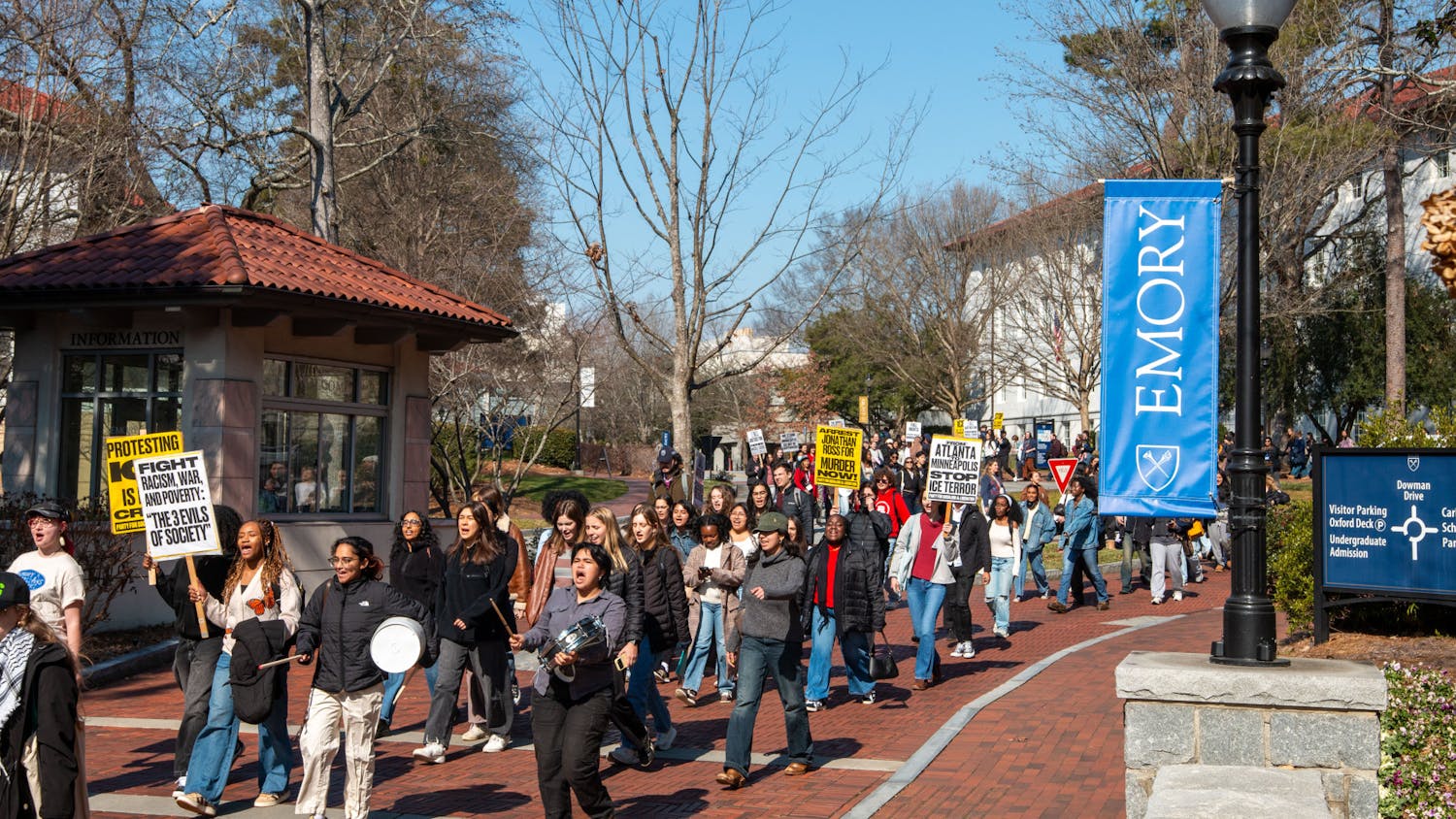In light of the recent eviction flyers posted on students’ doors, and in response to Anthony Wong’s (21C) Wheel op-ed, I feel the need to respond to lingering anti-Jewish sentiment by some members of the Emory community including microaggressions, graffiti and unreported verbal attacks on Jewish students.
The recent op-ed as well as a public statement by Emory Students for Justice in Palestine (ESJP) makes the same mistake as much of the debate regarding the Israeli-Palestinian conflict: consistent confusion of ethnic, religious, cultural and national identity. The relationship of the Jewish people to their religion and Israel is complicated and a subject of other works, but neither Chabad at Emory nor Emory Hillel is a representative of the Israeli government.
However, Wong’s op-ed points to statements made by Emory Hillel before calling on “Israeli community” to be “self-reflexive.” Religious organizations and believers should not be responsible nor be held accountable for the political actions of a state, especially since most Jews in the United States do not vote in Israeli elections. The op-ed misses the distinction between religion and nationality as it seems to mistakenly equate Jews with Israelis, using the two terms interchangeably. To place a burden on all Jews for the repressive policies of the right-wing Israeli government is to do the same to all Muslims for the homophobic and anti-feminist policies of Saudi Arabia.
ESJP has formerly claimed to want dialogue regarding the Israeli-Palestinian conflict. ESJP members wrote in a 2015 Wheel op-ed that they hope to engage all members of the Emory community on the Israeli-Palestinian issue with the goal of reaching “a sustainable and just peace.” However, ESJP has a long history of provocative protests, including an annual wall display that features several controversial statements regarding the Israeli-Palestinian border and supporting the idea that Israel is an apartheid state. While no one can deny that dialogue has been created this past week, these counterproductive acts only expand divisions between those with differing views and do not advance their stated cause. Perhaps instead of performing these acts, calling for a boycott of Emory Hillel and Chabad at Emory and hosting anti-Zionists at Emory, ESJP could engage with pro-Israeli students. In the words of Israeli military leader and politician Moshe Dayan, “If you want to make peace, you don't talk to your friends. You talk to your enemies.”
There is victimization on all sides of the conflict, and there is no need to provide further fuel to the fire. As a participant in one of the Emory Office of Spiritual and Religious Life Journeys of Reconciliation inter-religious trips that explored the Israeli-Palestinian conflict, I am familiar with the recognition of mutual humanity that is required for discussing these difficult issues. This type of acknowledgement is lacking in the actions of some who want to advance the Palestinian cause at Emory.
Productive dialogue and engagement is necessary at this University, but we cannot reach that point until attitudes change to allow mature discussion.
Alexander Wein (08Ox, 10C, 18G, 20M) is from Dalton, Ga.
Assistant Opinion Editor Zach Ball (21C) previously served as president of Emory Students for Justice in Palestine and was not involved in editing this op-ed.









